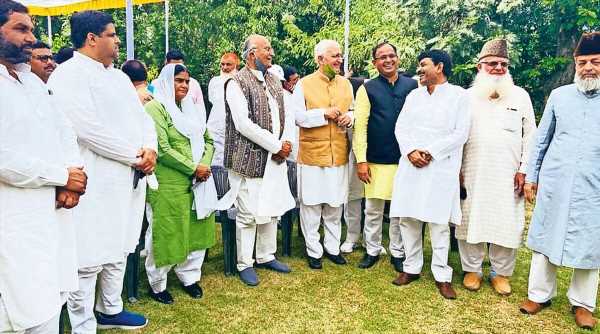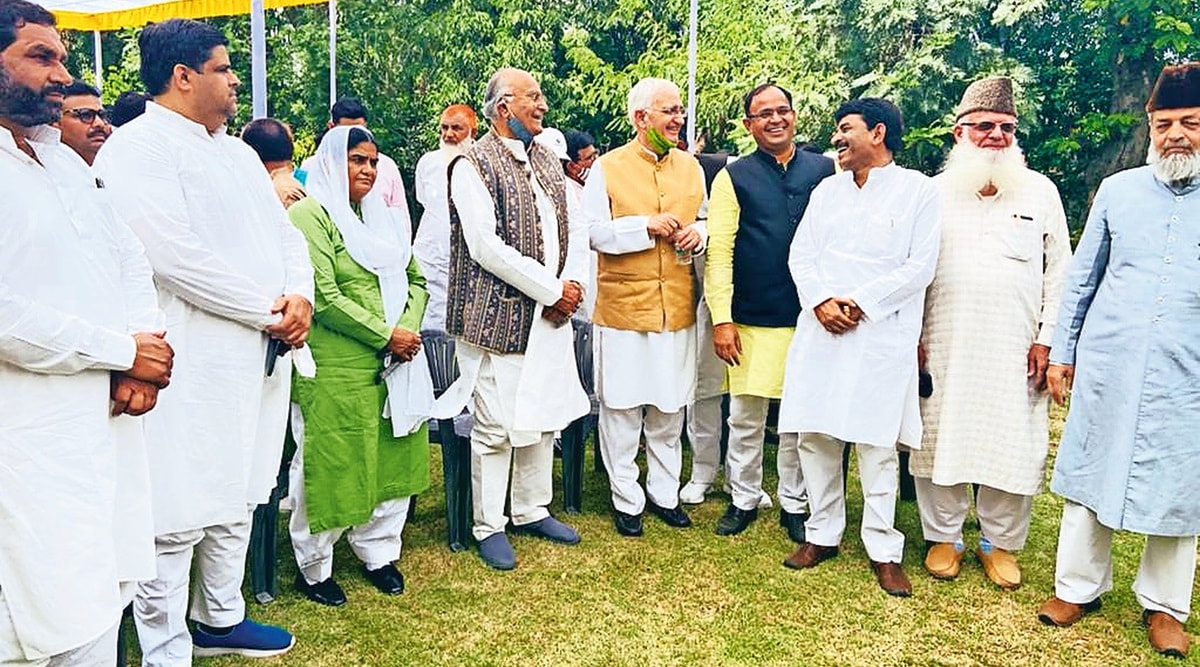While the programme is being seen as a show of strength by Khan, and a bid to consolidate the Muslim vote, the former minister said it was aimed at bringing together newly-elected members of urban and rural bodies and senior leaders so that new members can “learn” from the “experiences of veterans”.
Amid growing discontent among Muslims with the Rajasthan government, former Health Minister and Rajya Sabha MP Aimaduddin Ahmad Khan on Sunday brought together Muslim MLAs, newly-elected councillors to local bodies, as well as influential members of the community at his residence.
While the programme is being seen as a show of strength by Khan, and a bid to consolidate the Muslim vote, the former minister said it was aimed at bringing together newly-elected members of urban and rural bodies and senior leaders so that new members can “learn” from the “experiences of veterans”.
“Many people inquired about the aim of this programme. People believed that it is regarding elections, or is political. Elections are indeed important in democracy but elected representatives also have a responsibility,” said Khan.
The community’s apparent dissatisfaction with the Gehlot government reached a crescendo in November last year, with the curtailed ‘Dandi march’ by government teacher Shamsher Khan, who was demanding regularisation of madrasa teachers. Protests were held across the state in his support while several MLAs expressed support and wrote to the CM or the Education minister. Around the same time, some Muslim Congress leaders also met Ajay Maken and expressed their unhappiness about the alleged “disregard” by Congress leadership to their issues, such as bypassing them for a mayoral post.
Apart from heads and members of civic bodies across the state, the event was also attended by several senior leaders—Former Union external affairs minister Salman Khurshid, former Rajasthan minister and Rajya Sabha MP Ashk Ali Tak, former Rajasthan chief secretary Salauddin Ahmed—as well as MLAs Hakam Ali Khan, Rafeek Khan, Amin Kagzi, former Congress minority cell chief Abiz Kagzi, Bar Council Chairman Shahid Hasan, among others.
Khurshid said at the event, “The condition of the country today is such that we will be selfish if we ask that our woes be discussed; because the country is in more pain.”
“Today a question is being raised; ‘Who are you?’ They say ‘we have expelled you from politics, your vote won’t have any effect now. You can win 2-4 seats but you can’t form governments. You can’t decide the future of India,’ we are being told. They may say anything, that’s not the issue. The issue is that we have decided that we’ll fight within ourselves so much, that we can’t decide the future of the country,” he said.
Khurshid implied that the division of votes has hurt the prospects of leaders of the community. “One can briefly win 2-5 seats, and make others lose in 15-20 seats. But no one can change the nizam (establishment).” Khurshid added that the fight is for the “secular nature of this country” and it can be won only through unity between communities.
Source: Read Full Article


